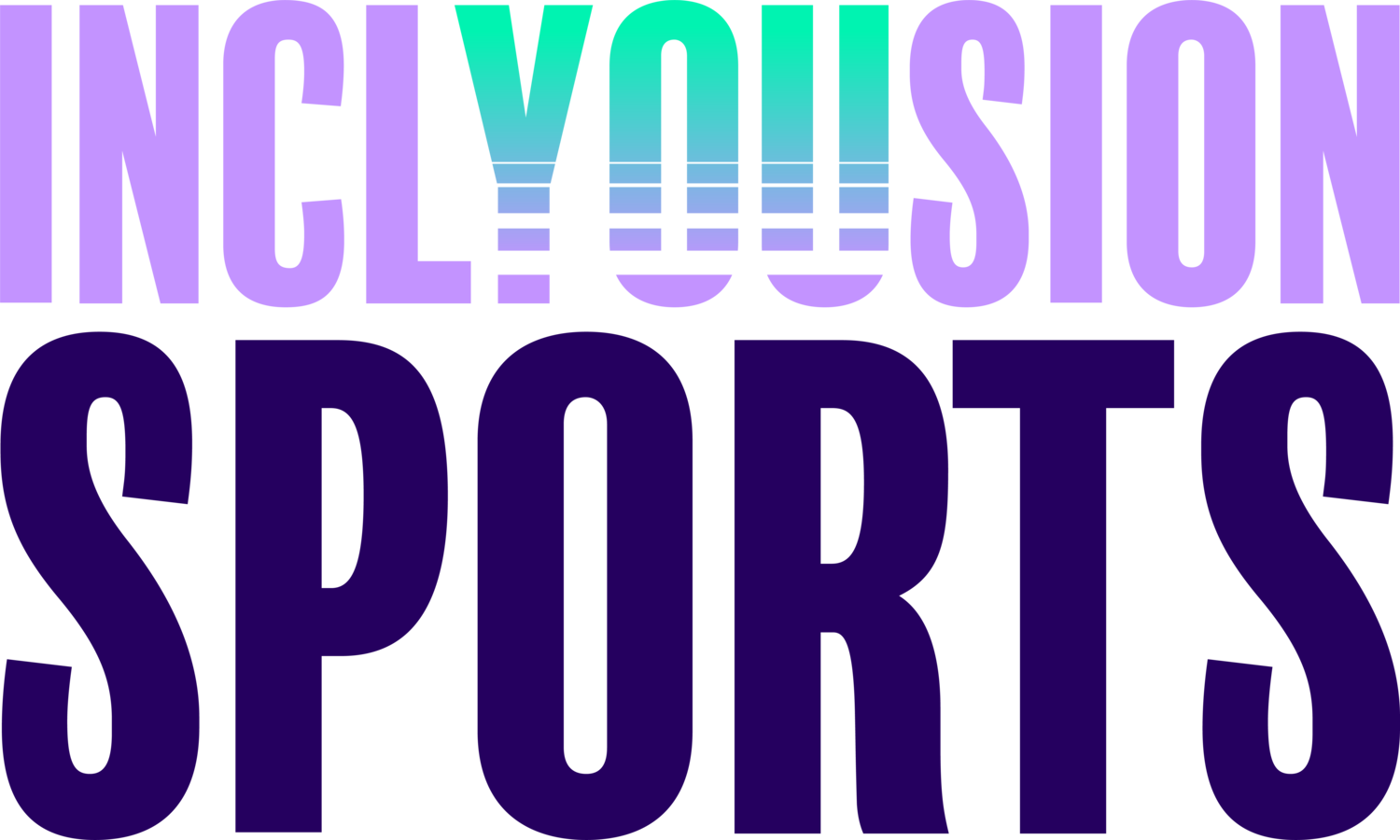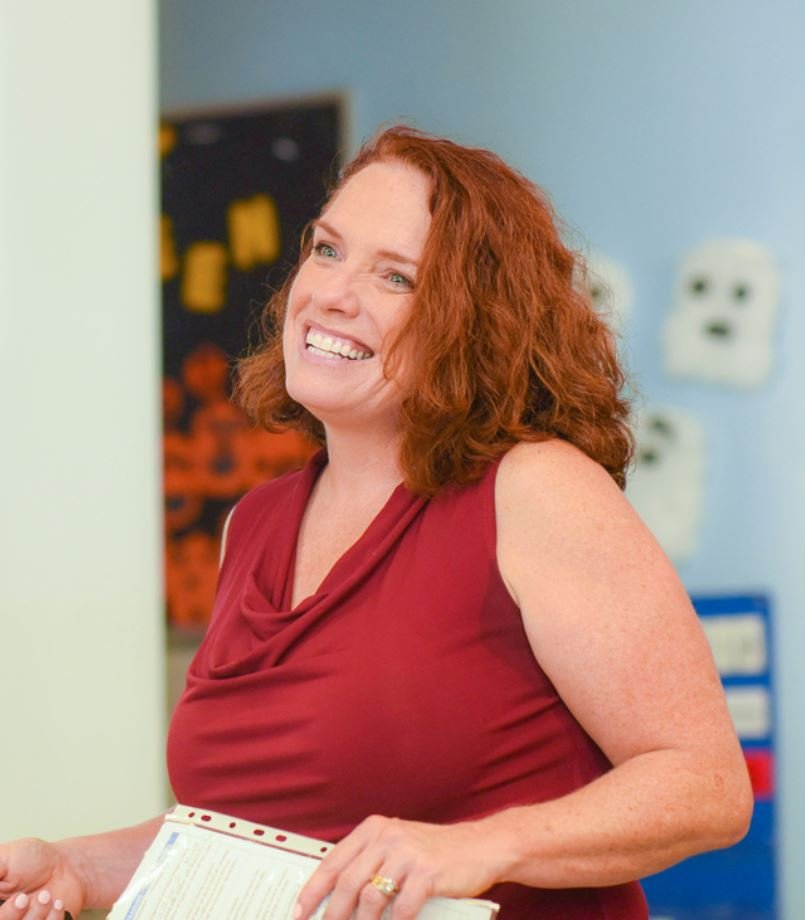Community Connection: Meet Lisa Drennan
“Inclusion assumes that learning and playing together is a better way that benefits everyone.”
If you’re a parent of a school age child, this is the time of year when you’re looking at all of the summer camp options available in your community. If you’re a parent of a school age child with diverse abilities, you may be met with the challenge of wanting your child to participate in a local program, but may be hesitant to register them based on concerns around whether the summer camp staff are adequately trained and prepared to support your child’s unique needs.
Next up in our Community Connection blog series is Inclyousion Sports’ inclusion consultant, Lisa Drennan! Lisa supports local recreation departments and sports organizations to understand and implement inclusive programming so that all people can have the opportunity to meaningfully participate.
Community Connection will share perspectives from people who are involved in inclusion work, across diverse careers and community volunteer roles, as well as through personal experiences. We hope that through reading about experiences and ideas from people in your community, you feel inspired to continue on your own journey towards building a more inclusive world.
Please share a little about yourself.
I’ve been working in the field supporting individuals with intellectual and developmental disabilities to be active and engaged within their community since 1984! My career started at New England Village (NEV) in Pembroke, MA, where I gained experience in working as a Direct Support Worker, and then Recreation Coordinator. I helped to design, open and build programming of The Sollar Wellness Center on the NEV campus, which served this same population.
In 2014, I joined the South Shore YMCA as the first-ever Association Director of Inclusion, where I was charged with creating innovative programs and comprehensive staff trainings to build a culture of authentic inclusion. The YMCA of the USA recognized my work and asked me to co-lead a resource group for Y’s across the nation. Through that work, I realized I wanted to bring inclusion consulting to a new level and in 2018, I started MERGE Inclusion Consulting where I provide consultation, staff training and systems implementation to community entities committed to recreation, sport and social program inclusion.
What is your current profession and what influenced you to do the work that you do?
My current role as founder of MERGE Inclusion Consulting has proven to be the perfect culmination of my years of varied experiences in supporting persons with disabilities. My “aha” moment that influenced my decision to start MERGE occurred when I was working for the YMCA. Running the resource group for the YMCA of the USA, often put me in touch with other Y professionals seeking to enhance their inclusion initiative. There was one call I was on where I was guiding a Y staff member who was new to her leadership role on how to gain buy-in from her team. There was just something about that call and the satisfaction of helping someone in this capacity and the ease of which my advice rolled out, I recall sitting there saying to myself “this is what I want to do, this is an opportunity to really change the world”. Weeks later I was in full planning mode of creating my new consulting and training business.
Why aren't more youth sports programs inclusive? What are the challenges you hear from recreation and sports organizations to implement successful inclusive programming?
In my experience the biggest challenge in creating more inclusive sports programs usually falls into one of two categories: not thinking or even knowing that there is a need… or… not knowing how to meet that need. The first is based on the misguided idea that "people with disabilities have their own programs”, because historically they have been segregated. Or, in some cases an organization may feel that they are being inclusive because they offer specialized or adaptive programs. I work to teach that these should be an option or a gateway program, not the only way in which people with disabilities can participate.
The second major challenge in creating more inclusive sport programs is not knowing how to welcome, engage and support people with disabilities into their existing settings. The common barriers I hear from sports or recreation programs is that they aren’t trained or have the knowledge and experiencing in working with people with disabilities, and/or the fear of the unknowns.
What is the difference between inclusive versus adaptive sports programs?
Adaptive or specialized sports programs are “disability specific” and are offered with instruction of participants provided in separate environments designed to respond to a particular or various impairments. Examples would be: wheelchair basketball, autism swim or Special Olympics (except for the Unified format). Inclusive sports are when a typical sport setting does the intentional work to welcome, engage and support persons with disabilities to meaningfully participate side by side with their peers. In this setting, all staff are training to make accommodations and modifications to help players with disabilities to be successful. So in other words, it’s a typical sport setting, but they are committed to welcoming ALL members of our community to be on their team. Ideally, this occurs at ratios that naturally reflect our community.
Why should all parents consider inclusive sports programming for their children, rather than just parents of children with disabilities?
When inclusive practices are in place, ALL children (coaches, staff, volunteers, parents) benefit and learn. When inclusion is fully embraced, we begin to look beyond typical ways of becoming valued members of the community (or team) and in doing so begin to realize the benefits of providing ALL children with an authentic sense of belonging. Inclusion assumes that learning and playing together is a better way that benefits everyone, not just children who are labeled as having a difference. Parents of children with and children without disabilities are crucial to the success of inclusion in sport and recreation programs. Both should seek to understand the differences between adaptive & inclusive programs. Parents of children without disabilities can help facilitate conversations with their children, can ask questions if they have them, and most importantly can demonstrate and encourage good social interactions for their children in regards to the players with disabilities (i.e. extend an invitation for a play date, initiate friendly conversations).
What is one book/movie/podcast that changed the way that you understand inclusion?
Impossible to pick one!
Books: Dancing With Max, Knowing Jesse
Podcast: Think Inclusive
Movie: Peanut Butter Falcon, Intelligent Lives
What is one action that readers can take today to be more inclusive?
Be an ALLY and friend – you can start by reading The Building Friendships Toolkit (and then share it!)
To learn more about Lisa and Merge Inclusion Consulting, check her out on Facebook and Instagram, as well as at:

